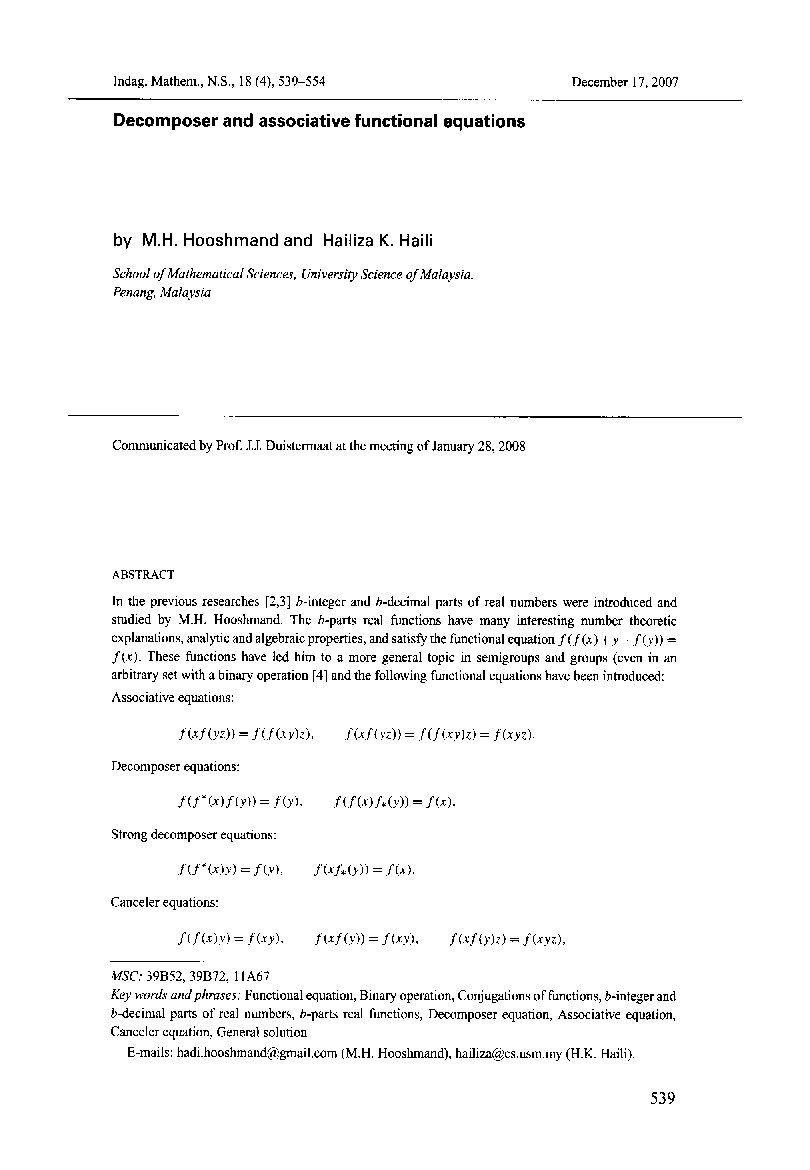| Article ID | Journal | Published Year | Pages | File Type |
|---|---|---|---|---|
| 4673304 | Indagationes Mathematicae | 2007 | 16 Pages |
In the previous researches [2,3] b-integer and b-decimal parts of real numbers were introduced and studied by M.H. Hooshmand. The b-parts real functions have many interesting number theoretic explanations, analytic and algebraic properties, and satisfy the functional equation f (f(x) + y - f(y)) = f(x). These functions have led him to a more general topic in semigroups and groups (even in an arbitrary set with a binary operation [4] and the following functional equations have been introduced: Associative equations:f(xf(yz))=f(f(xy)z),f(xf(yz))=f(f(xy)z)=f(xyz)f(xf(yz))=f(f(xy)z),f(xf(yz))=f(f(xy)z)=f(xyz). Decomposer equations:f(f*(x)f(y))=f(y),f(f(x)f*(y))=f(x)f(f*(x)f(y))=f(y),f(f(x)f*(y))=f(x).Strong decomposer equations:f(f*(x)y)=f(y),f(xf*(y))=f(x)f(f*(x)y)=f(y),f(xf*(y))=f(x).Canceler equations:f(f(x)y)=f(xy),f(xf(y))=f(xy),f(xf(y)z)=f(xyz)f(f(x)y)=f(xy),f(xf(y))=f(xy),f(xf(y)z)=f(xyz), where f*(x) f(x) = f (x) f* (x) = x. In this paper we solve them and introduce the general solution of the decomposer and strong decomposer equations in the sets with a binary operation and semigroups respectively and also associative equations in arbitrary groups. Moreover we state some equivalent equations to them and study the relations between the above equations. Finally we prove that the associative equations and the system of strong decomposer and canceler equations do not have any nontrivial solutions in the simple groups.
